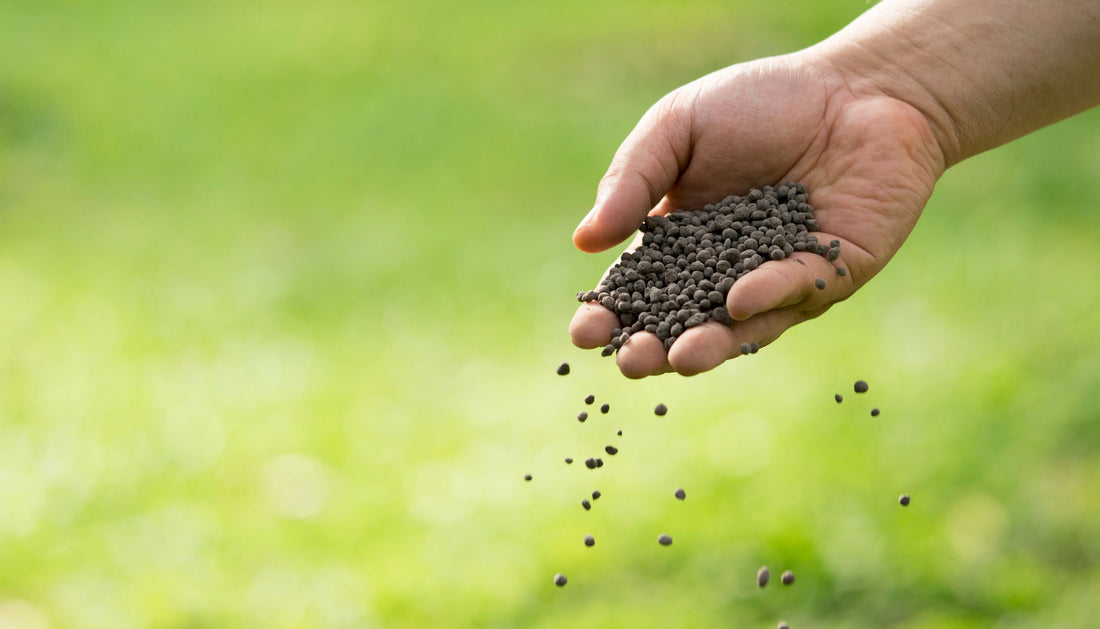The Environmental Impact of Synthetic Fertilizers
Synthetic fertilizers have become a common tool in modern gardening, promising quick and remarkable results. However, their convenience comes at a great cost to the environment. These chemical-based fertilizers contain high levels of nitrogen, phosphorus, and potassium, which can have devastating effects on ecosystems when they are overused or mismanaged.
Water Pollution
One of the major concerns with synthetic fertilizers is their contribution to water pollution. When these fertilizers are applied to gardens and agricultural fields, excess nutrients often find their way into nearby water bodies. This process is known as nutrient runoff, and it can lead to the growth of harmful algal blooms.
These algal blooms deplete oxygen levels in the water, leading to the death of fish and other aquatic organisms. Additionally, the excessive growth of algae blocks sunlight from reaching deeper parts of the water, affecting the entire aquatic ecosystem.
Soil Degradation
Synthetic fertilizers provide an immediate boost of nutrients to plants, but they do little to improve the long-term health of the soil. Continuous use of synthetic fertilizers can lead to the depletion of essential organic matter in the soil, making it less fertile over time.
Furthermore, synthetic fertilizers can disrupt the delicate balance of microorganisms in the soil, hindering nutrient cycling and reducing the soil's ability to retain water. This, in turn, leads to increased erosion and the loss of topsoil, which is crucial for plant growth and food production.
The Importance of Organic Gardening Practices
Organic gardening practices offer a way to mitigate the environmental impact of gardening. By using natural fertilizers such as compost, manure, and organic amendments, gardeners can provide a steady supply of nutrients to their plants while nourishing the soil ecosystem.
Organic gardening also encourages the use of companion planting, crop rotation, and biological pest control methods, reducing the need for synthetic pesticides and herbicides. These practices work in harmony with nature, supporting biodiversity and creating a healthier and more sustainable environment.
Seed Starting Bundle: A Sustainable Solution
When starting a garden, it's important to choose products that align with your values and contribute to a healthier, more sustainable environment. LOVE.com's Seed Starting Bundle provides organic and sustainable seed starting solutions that allow you to garden in harmony with nature.
The bundle includes Plant Juice, an organic supplement that promotes germination and fertilization, as well as Elm Dirt's all-natural Seedling Mix and Kelp Mist. By using these natural and eco-friendly products, you can ensure that every stage of your plant's growth is in line with your commitment to environmental consciousness.
Not only do these products help create a strong and healthy root system for your plants, but they also contribute to the overall health of the soil and surrounding ecosystem. By choosing LOVE.com's Seed Starting Bundle, you can be confident that you are making a positive impact on the environment and supporting sustainable gardening practices.
Make a Positive Impact with Organic Gardening
Gardening provides us with an opportunity to connect with nature and contribute to the health of our planet. By embracing organic gardening practices and using sustainable products, we can ensure a brighter future for ourselves and generations to come.
LOVE.com understands the importance of sustainable gardening and offers a wide range of products that support organic and eco-friendly practices. Their Seed Starting Bundle is just one example of how you can make a positive impact on the environment while growing a thriving garden.
So why wait? Make the switch to organic gardening today and explore the sustainable gardening solutions available at LOVE.com. Together, let's create a greener and healthier world, one garden at a time.

